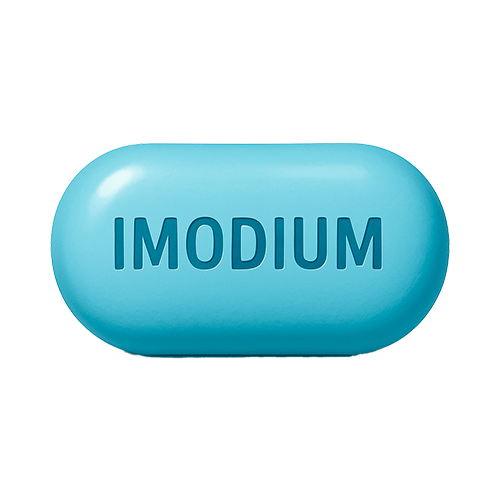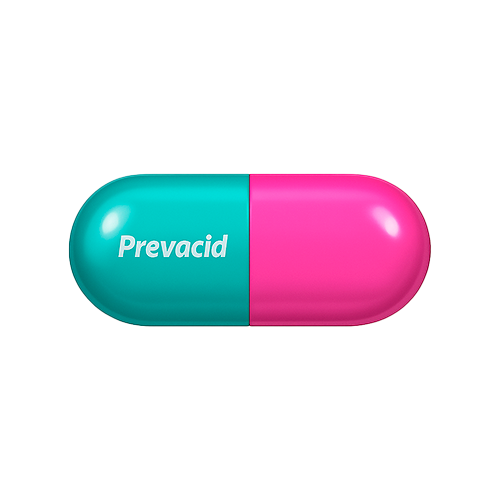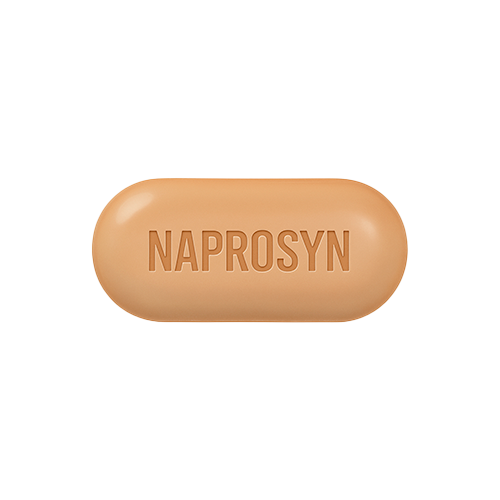Imodium (loperamide) is an over-the-counter antidiarrheal medication used to slow down gut movement and reduce the frequency of bowel movements in adults with acute or chronic diarrhea. It can also be prescribed for certain gastrointestinal conditions that involve loose stools.
While generally effective, it’s important to use Imodium properly and avoid exceeding recommended doses — especially when symptoms persist. Here’s what you need to know before taking it.
Imodium Product Description
Imodium is an effective antidiarrheal medication designed to normalize intestinal peristalsis and restore digestive stability. It works by slowing down the movement of the intestines, allowing more water and nutrients to be absorbed, which helps form firmer stools. Imodium is indicated for the symptomatic treatment of both acute and chronic diarrhea, helping to reduce the frequency and urgency of bowel movements. In addition to its primary antidiarrheal effects, the medication also helps alleviate abdominal discomfort and cramping associated with diarrhea. Imodium is often recommended for travelers, individuals with irritable bowel syndrome, and patients experiencing diarrhea due to dietary changes or stress. The medication begins working quickly, with noticeable symptom relief within a few hours. It provides reliable control of bowel function, allowing patients to regain comfort and confidence in their daily routines. While Imodium effectively manages symptoms, it should not replace treatment of the underlying cause of diarrhea. Long-term use requires medical supervision to ensure safety and prevent complications. When used properly, Imodium is a trusted option for improving digestive health during episodes of diarrhea.
Imodium Safety Information
Imodium is contraindicated in several conditions, including acute dysentery, infectious diarrhea caused by pathogens such as Shigella, Salmonella, and Campylobacter, as well as diverticulosis and ulcerative colitis during acute flare-ups. It is not recommended during the first trimester of pregnancy or while breastfeeding due to potential risks to the child. Additionally, Imodium is not prescribed for individuals with intestinal obstruction, pseudomembranous enterocolitis, or children under six years old. Caution is required in patients with liver dysfunction, as toxin buildup may increase the risk of serious complications. People living with HIV should discontinue Imodium immediately if any signs of gastrointestinal issues occur, as there is an increased risk of developing bacterial colitis or toxic megacolon. If symptoms like constipation, severe bloating, or fever develop, urgent medical attention is necessary. In cases of dehydration or electrolyte imbalance, supportive therapy with fluids and electrolytes is essential. Imodium should only be used as a symptomatic treatment and must be combined with other appropriate therapies if the cause of diarrhea is infectious. If diarrhea persists for more than two days without improvement, discontinuation of Imodium is advised to rule out serious infections requiring targeted treatment.
Overdose
Overdosing on Imodium can result in serious symptoms, including extreme drowsiness, impaired coordination, muscle stiffness, respiratory depression, and narrowed pupils. In severe cases, intestinal obstruction may occur, requiring immediate medical intervention. If an overdose is suspected, prompt gastric lavage is recommended, followed by the administration of activated charcoal to reduce absorption of the drug. Hospitalization may be necessary for close monitoring and supportive care, and specific antidotes such as naloxone may be administered if life-threatening symptoms develop. Continuous observation of vital signs and respiratory function is crucial until the patient fully recovers. Early recognition and treatment of overdose symptoms can prevent severe complications and support a safe recovery process.
Clinically reviewed | Based on usage guidelines for loperamide in gastrointestinal symptom management.
Imodium is typically taken as a 4mg initial dose, followed by 2mg after each loose stool, not to exceed 8mg daily (OTC) or 16mg (prescription) unless advised by a healthcare provider. Long-term use should be monitored.
Imodium Side Effects
While generally well-tolerated, Imodium may cause a range of side effects. Digestive system reactions include bloating, constipation, abdominal pain, intestinal colic, nausea, vomiting, and occasionally dry mouth. Rarely, cases of intestinal obstruction have been reported, particularly with improper use or prolonged treatment. Beyond gastrointestinal symptoms, patients may experience fatigue, drowsiness, dizziness, and allergic reactions such as skin rashes and itching. Some individuals report a burning sensation or tingling in the tongue shortly after taking the medication. Though these side effects are typically mild and temporary, patients should monitor their response to the drug and seek medical advice if symptoms worsen or persist. Careful adherence to dosing guidelines and treatment duration helps minimize the risk of adverse effects. If side effects become severe or unusual symptoms arise, discontinuation of the medication and medical consultation are necessary. Regular medical oversight is recommended during extended use to maintain safety and effectiveness of therapy.
For related GI medications, explore Reglan for nausea or Protonix for acid-related symptoms — often part of broader digestive care.











Brenna –
I always keep Imodium in my travel kit — it’s a real lifesaver when you’re away from home and dealing with sudden stomach issues. It works fast and helps me feel normal again without making me too drowsy or uncomfortable. Definitely a must-have for anyone with a sensitive digestive system!